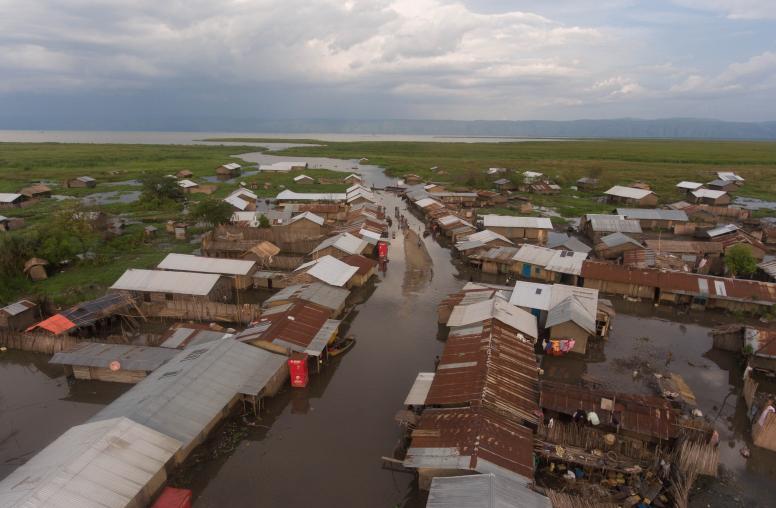RESOLVE 2019 Global Forum
Resetting Priorities to Address Violent Extremist Threats
Despite progress in countering violent extremism, it still poses challenges that have grown more lethal and complex as new actors and conflicts arise. To face these emerging trends, policymakers and practitioners require global insights—grounded in research—into sources of resilience and vulnerability. The annual RESOLVE Global Forum brought together top scholars, practitioners, and policymakers to reflect on past efforts, explore prevailing myths, and discuss strategies to recalibrate the way forward in addressing violent extremism.
RESOLVE’s mission is to provide insights into violent extremism around the world, elevate local voices and analysis, and increase connectivity between research, policy, and practice. The rise in violent extremism globally lends urgency to reflect on and highlight successful approaches, refocus research and practice, and find areas for collaboration.
The full-day public event, which featured a series of panel discussions and TED Talk-style presentations with leading experts, aimed to reset priorities and understand the contemporary challenges to countering violent extremism. Continue the conversation with #RESOLVEForum.
Agenda
8:30am - 9:00am: Informal RESOLVE Stakeholder Meet and Greet, Registration
9:00am - 9:20am: Welcome Remarks
- Ambassador George Moose
Vice Chair, Board of Directors, U.S. Institute of Peace
Keynote Remarks (Watch)
- Assistant Secretary Denise Natali
Assistant Secretary, Bureau of Conflict and Stabilization Operations, U.S. Department of State
Introductory Remarks
- Leanne Erdberg
Director of Countering Violent Extremism, U.S. Institute of Peace and interim Executive Director, RESOLVE Network
9:20am - 9:50am: Fireside Chat (Watch)
- J.M. Berger
Author, Research Fellow, VOX-Pol - Michael Singh
Senior Fellow, Managing Director, The Washington Institute for Near East Policy
9:50 - 10:30am: TED Talk-Style Presentations
- Countering Violent Extremism as a Grand Strategic Response to Terrorism (Watch)
William Braniff
Director, National Consortium for the Study of Terrorism and Responses to Terrorism (START), University of Maryland - Methodologies and the Media in Countering Violent Extremism Research (Watch)
Laura Dugan
Professor and Associate Chair, Department of Criminology and Criminal Justice, University of Maryland - The Psychology of Terrorism (Watch)
John Horgan
Distinguished University Professor, Georgia State University
10:30am - 11:00am: Coffee Break
11:00am - 12:00pm: Panel 1: Non-State Governance and Going Local (Watch)
- Houda Abadi
Founder and Executive Director, Transformative Peace - Linda Bishai
Professorial Lecturer, Elliott School of International Affairs, George Washington University - Katherine Zimmerman
Research Fellow, American Enterprise Institute - David Yang, moderator
Vice President, Applied Conflict Transformation Center, U.S. Institute of Peace
12:00pm - 1:00pm: Lunch
1:00pm - 2:00pm: TED Talk-Style Presentations
- Neuroscience and Countering Violent Extremism (Watch)
Nafees Hamid
Research Fellow, Artis International - Trauma and Countering Violent Extremism (Watch)
Teuta Avdimetaj
Researcher and Policy Adviser, Kosovo - Participatory Action Research (Watch)
Illana Lancaster
Senior Program Officer, Security Sector Capacity Building, Academy, U.S. Institute of Peace
Munira Hamisi
Director of Countering Violent Extremism, Mombasa County Government, Kenya
Felix Bivens
Co-founder and Co-director, Rē: The Regenerative School
2:00pm - 2:30pm: Coffee Break
2:30pm - 3:45pm: Panel 2: Violent Extremism Disengagement and Reconciliation (Watch)
- Shiraz Maher
Director, International Centre for the Study of Radicalisation and Political Violence, King's College London - David Malet
Assistant Professor, American University - Lisa Schirch
Senior Research Fellow, Toda Peace Institute - Georgia Holmer, moderator
Senior Advisor for Anti-Terrorism Issues, OSCE Secretariat
3:45pm - 5:00pm: Panel 3: Global Policy Trends and the Impact of Research (Watch)
- Robert Faucher
Principal Deputy Assistant Secretary, Bureau of Conflict and Stabilization Operations, U.S. Department of State - Daniel Kimmage
Principal Deputy Coordinator, Global Engagement Center, U.S. Department of State - Lieutenant General (ret) Michael K. Nagata
Director of Strategy for the National Counterterrorism Center, U.S. Army - Christopher Runyan
Senior Coordinator, Bureau for Africa, U.S. Agency for International Development - Daniel Benjamin, moderator
Director, John Sloan Dickey Center for International Understanding, Dartmouth College
5:00pm: Closing Remarks
5:00pm - 6:30pm: Reception
6:30pm: Reception End
Learn more about the RESOLVE Network and our work by following us on Twitter @resolvenet and subscribing to our newsletter at www.resolvenet.org.



